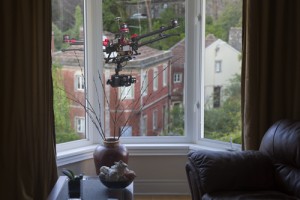Recreational Drones: Do Homeowners’ Insurance Policies Provide Coverage?

In most cases you should be covered by damage done by a drone you were piloting, as long as it for personal and not business reasons.
Recreational drones, or the more technical name, Unmanned Aerial Systems (UAS) have skyrocketed in popularity in the last few years. As they have literally filled the sky, a debate has been sparked regarding both safety and privacy. Misuse, or the crashing of a drone into another person’s property can result in a huge repair bill or even a lawsuit.
Before plunking down the cash for a drone, it is wise to clearly understand the insurance risks and determine if you are covered in the event of an accident. A $500 drone can quickly turn into a pricey mistake costing thousands of dollars.
Here is everything you need to know about drones and homeowners insurance:
Drone Use is On the Rise
Drones no longer refer to remote control military planes flying thousands of feet in the air, dropping bombs on enemy positions. Drones have moved into the mainstream and now include small recreational crafts that use a small battery powered engine to control four or eight blade propellers.
A drone can take off vertically, hover, cover a lot of ground, and climb hundreds of feet in the air, all while taking photos and video. Drones are used by realtors, surveyors, law enforcement and of course hobbyists, to name just a few.
According to the Consumer Electronics Association, drone sales will increase almost 50 percent this year, which translates into an additional 300,000 drones in the air. Crashes, lawsuits, and even near misses with commercial aircraft have been on the rise as more drones crowd the sky.
Homeowners Insurance and Drones
Policies vary so there is never an absolutely definitive answer when it comes to homeowners insurance, but in most cases you should be covered by damage done by a drone you were piloting, as long as it for personal and not business reasons.
Unfortunately, the only way to be absolutely certain is to read your policy in full and call your agent or insurer with any questions regarding coverage.
According to legal experts, a standard homeowners policy will provide coverage for damages that the insured is legally obligated to pay due to bodily injury or property damage arising from an occurrence to which the policy applies. In easier to understand terms, this simply means, you are covered, as long as the policy does not specifically exclude drone use.
However, there can be complications. The majority of homeowner policies do exclude liability coverage for injuries and damages related to the ownership and use of “aircraft”. Luckily, the majority of policies exclude model or hobby aircraft from this exclusion, so damages due to a drone are covered.
Again, policies vary so check with your agent or insurer before sending your drone out into the world.
Business Use is Not Covered
One exclusion that is crystal clear is business use. If you are using your drone for business purposes, or receiving compensation for its use, your homeowners coverage will not provide any protection.
As an example, a real estate agent using a drone to photograph or video a home they are selling would not be covered if they crashed the drone into a car while filming.
Any use of a drone that results in compensation would not be covered. Taking personal videos or photos are fine, as long as you are not filming or photographing strangers, which can open a whole different can of worms.
Invasion of Privacy Claims
Photographing or filming strangers is never a good idea, but flying a drone onto their property and snapping photos is a truly horrible idea. Improper use of a drone and its video and picture taking equipment can result in an invasion of privacy lawsuit.
Depending on your policy, you may or may not be covered under these circumstances. Most homeowner policies provide coverage for liability issues defined as “personal injury” which usually includes items such as slander, libel and invasion of privacy.
Problems may arise if the policy has an intentional act exclusion, which many policies do. Basically, if the injuries were expected or intended by the insured, coverage does not apply. It will be pretty hard to argue injury was not intended if you fly a drone onto someone’s property, film them and then upload it to Facebook.
Tips for Drone Owners
Basically, common sense is your best bet with a drone. Here are a few tips that should ensure you are protected in the event of an accident:
- Only fly a drone in an open area where there is little chance of damaging people or property in the event of an accident.
- Never film or photograph anyone with a drone unless you have their consent.
- If you are using a drone for business purposes, buy a commercial policy.
- Never fly a drone around an airport or other controlled airspace.
